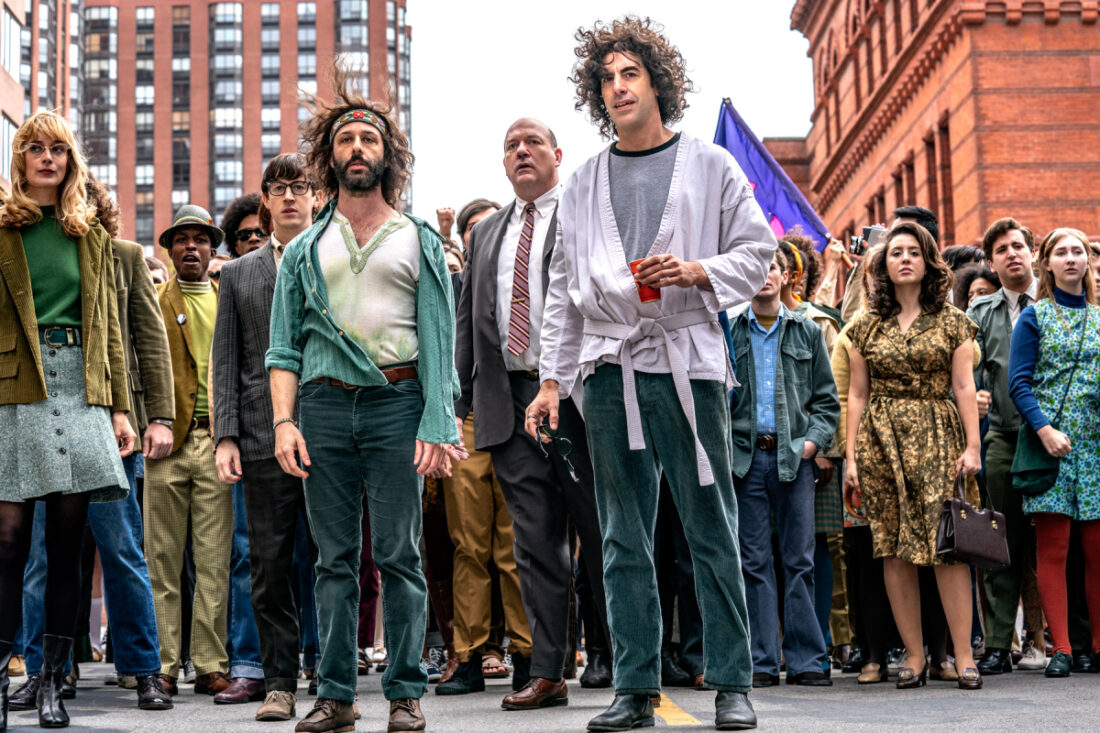One of the most sensational trials in American history got underway in Chicago on September 26, 1969 and dragged on for 151 days. It was essentially about enduring values that Americans cherish so much, namely free speech and freedom of assembly.
In effect, American democracy was on trial.
The defendants were left-wing radicals who believed that the United States should end its military involvement in the war in Vietnam. The U.S. government accused them of conspiring to incite the riots, which erupted at the Democratic Party’s presidential convention in Chicago in the summer of 1968.
Among the defendants were Tom Hayden, a founder of the Students for a Democratic Society; Abbie Hoffman, a leader of the counter-culture Youth International Party, and Bobby Seale, a Black Panther Party functionary.
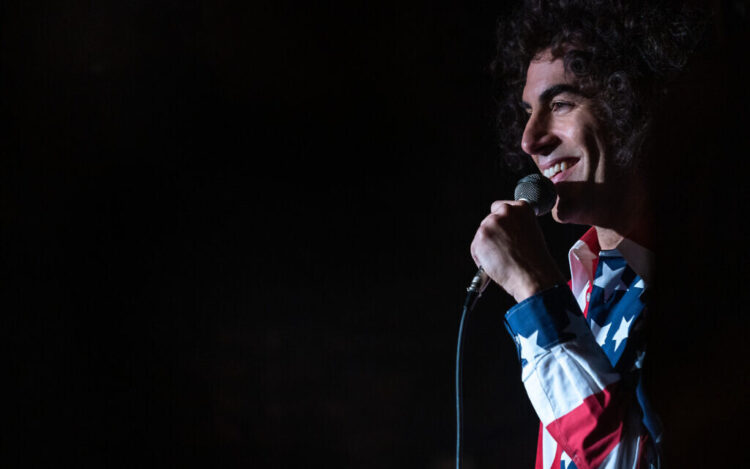
The Trial of the Chicago 7, a two-hour plus feature film written and directed by Aaron Sorkin, the creator of the acclaimed television series The West Wing, skillfully recounts the volatile events that led up to this courtroom drama and focuses on the trial itself. It is now available on Netflix.
Radicals like Hayden (Eddie Redmayne), Hoffman ((Sacha Baron Cohen) and Seale (Yahya Abdul-Mateen II) were staunch critics of U.S. President Lyndon Johnson’s hawkish policy with respect to the Vietnam war. They were especially upset by his decision to draft still more young American men into the armed forces and send them to Vietnam. They expressed their anti-war sentiments at protests and sit-ins around the country and at the Democratic national convention.
Hubert Humphrey, the Democratic contender, was defeated in the presidential election by his Republican rival, Richard Nixon. Nixon’s attorney-general, John Mitchell (John Doman), was determined to exact vengeance on the anti-war movement and charged two prosecutors, Richard Schultz (Joseph Gordon-Leevitt) and Thomas Foran (J.C. Mackenzie), with the task of convicting the alleged conspirators.
They included Jerry Rubin (Jeremy Strong), Hoffman’s associate, and David Dellinger (John Carroll Lynch), an old-school pacifist. Their lawyers were William Kunstler (Mark Rylance) and Leonard Weinglass. The presiding judge, Julius Hoffman (Frank Langella), was a starched, no-nonsense conservative figure who appeared hostile toward the defendants, especially Seale, whose counsel never appeared in court to defend him.
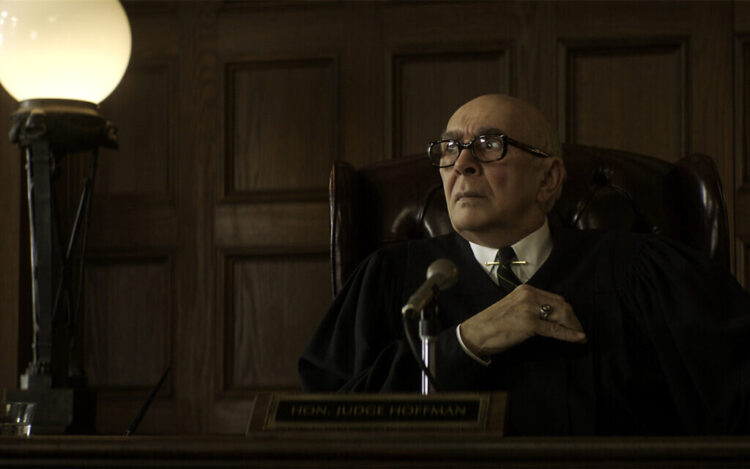
From the outset, the trial turned on one overarching question: who ignited the riots? The demonstrators or the police? It could be argued that the city of Chicago, having refused to grant the protesters a permit, sowed the seeds of the violence. As far as Abbie Hoffman was concerned, the Nixon administration was intent on persecuting dissenters. “This is a political trial,” Hoffman said.
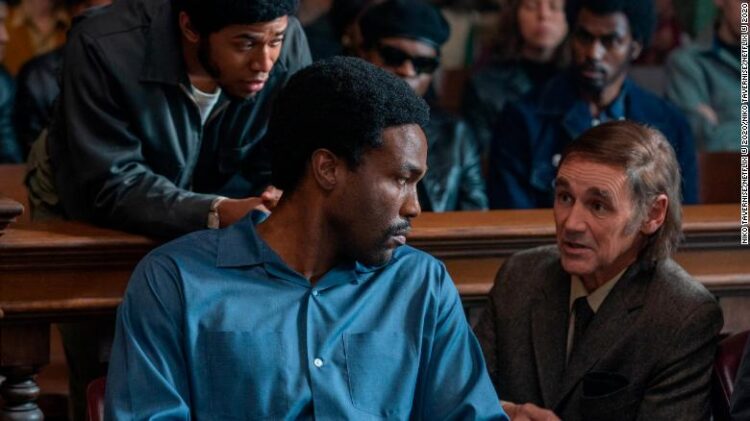
Although the defendants were lumped together in one identifiable group, they were really different in terms of their philosophy and goals. Hayden was a harsh critic of capitalism. Hoffman and Rubin were anarchists. Seale, an African-American fighting institutional racism, had no desire to be tried with the others.
Nor did Hayden and Hoffman ever reach an understanding on tactics and strategy, either during the demonstrations or at the trial itself.
The trial was punctuated by acrimonious and amusing exchanges between the judge, several of the defendants and Kunstler. Hoffman, Rubin and Kunstler were repeatedly charged with contempt of court by the increasingly annoyed and impatient judge.
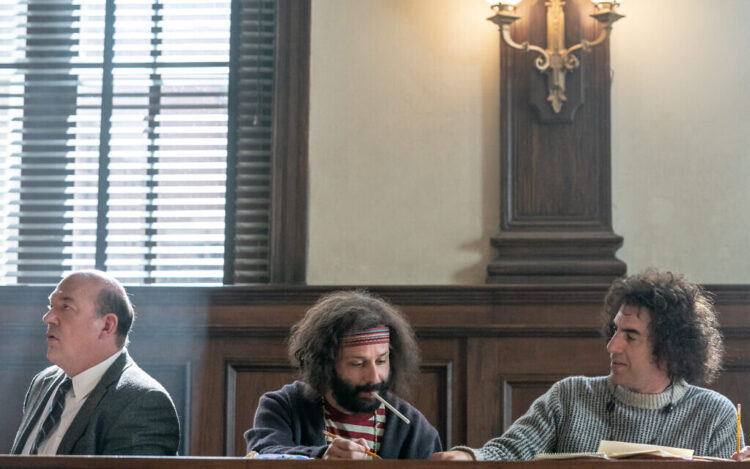
It was never really established which side ignited the riots.
Ramsey Clark (Michael Keaton), the former U.S. attorney-general, claimed in an off-the-record court session that the police started them. But Hayden, in a fiery speech, urged his followers “to let the blood flow.”
Thanks to an exceptionally fine script and an accomplished cast, Sorkin succeeds in recreating the polarizing atmosphere of the 1960s, which lamentably has replicated itself during the divisive presidency of Donald Trump. More than 50 years have elapsed since that tumultuous trial, but the temper of the times seems to have hardly changed in the United States.
